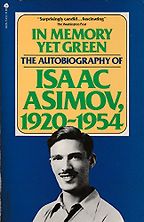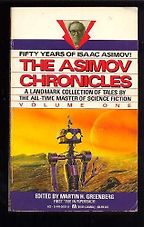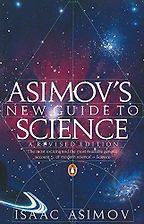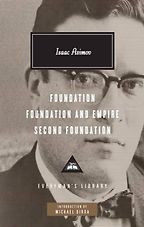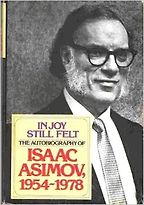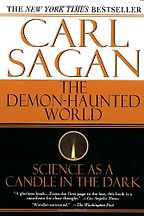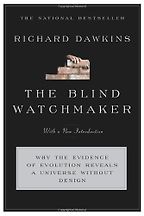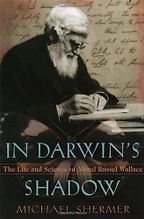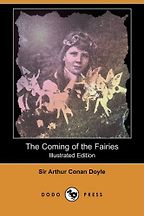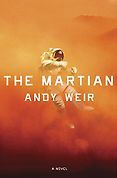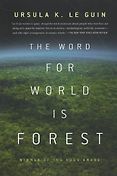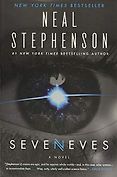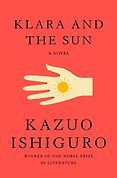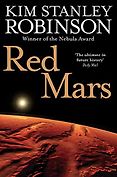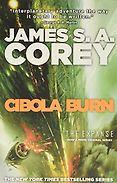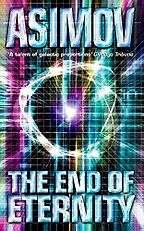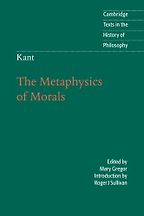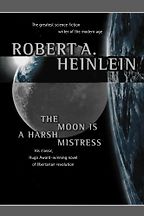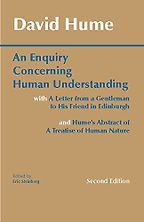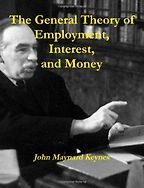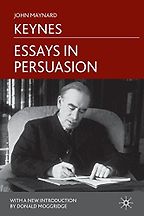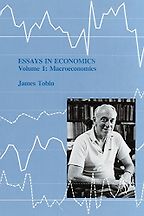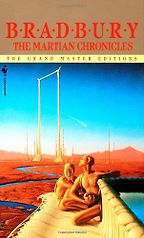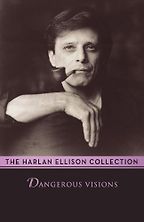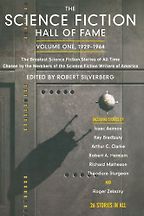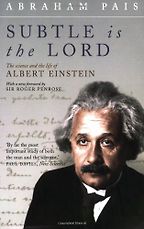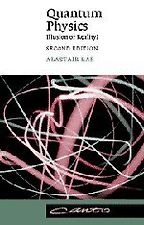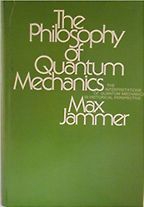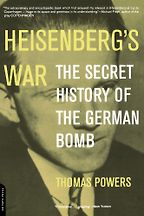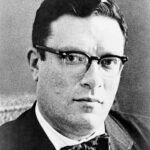
Books by Isaac Asimov
Isaac Asimov is famous for his science fiction books but was also a professor of biochemistry at Boston University.
James Randi recommends reading his autobiography In Joy Still Felt. “He was very fond of writing about himself. That may seem a bit egotistical, but then again he had every right to it – it was his life. This book shows his enthusiasm, his celebration of his own life. He was very happy with his life, even if he had strange turns of mind sometimes.”
Orson Scott Card says “Isaac Asimov wrote many good books, but the one that stands as his finest, and the one that most rewards periodic rereading, is The Foundation Trilogy: Foundation, Foundation and Empire and Second Foundation.”
“This is my favourite Asimov book…It’s full of incredible material on Campbell and that circle and on what it meant to be a person like this – what kind of personality could write 400 books over the course of his career? I was looking at this last night, and I couldn’t stop – you start reading, especially the second volume, and it’s just so interesting. So as a biographer, it was an incredible source of material, not just on him, but on the entire world of science fiction.” Read more...
Alec Nevala-Lee, Biographer
“I would start…with a couple of stories that are in this collection. The first is called ‘Nightfall’, and it’s a story that Asimov published in Astounding Science Fiction magazine, the pulp magazine in which most of his major stories appeared. ‘Nightfall’ was a story that turned him from a second-tier writer into someone seen as one of the best science fiction writers in the pulps. He became an acclaimed writer, at least among fans, because of the story ‘Nightfall’…The story is very dark. It doesn’t end well, I’ll say. But it’s a very interesting story, a very engaging story, and also pointed out some themes that become important later on” Read more...
Alec Nevala-Lee, Biographer
“It essentially covers all of science. It is 900 pages long, and it was as complete a guide to the sciences as one could buy in 1984, which is when it came out….Even though I have access to forty ensuing years of science popularisations, I come back to this book a lot, because he really was something special when it came to explaining things to people. I was struck by this fact – that despite the fact that I have access to all kinds of resources to write a book about science, Asimov was still the best explainer when it came to this material.” Read more...
Alec Nevala-Lee, Biographer
“This is a very unusual set of novels from Isaac Asimov, but a classic…The story is about these people, psychohistorians, who are mathematical social scientists and have a theory about how society works. The theory tells them that the galactic empire is failing, and they then use that knowledge to save civilisation. It’s a great image. I was probably 16 when I read it and I thought, ‘I want to be one of those guys!’ Unfortunately we don’t have anything like that and economics is the closest I could get.” Read more...
Books that Inspired a Liberal Economist
Paul Krugman, Economist
Like Dune, these books by Isaac Asimov consider the workings of a vast intergalactic empire—although Asimov sets out to portray the collapse of this ancient civilisation, and the efforts taken to preserve its scientific knowledge and culture so as to ultimately enable the founding of a new empire. Asimov was reportedly inspired by Edward Gibbon’s The History of the Decline and Fall of the Roman Empire, as well as Arnold Toynbee‘s theories on the cycle of history. The original Foundation trilogy was published in the 1950s and are considered masterworks of science fiction; other authors have written books set in the extended universe with the permission of the Asimov estate. If you’ve never read them, the Foundation books are your perfect next step: it’s a series with enormous scope and ambition.
From our article Books like Dune
“He was very fond of writing about himself. That may seem a bit egotistical, but then again he had every right to it – it was his life. This book shows his enthusiasm, his celebration of his own life. He was very happy with his life, even if he had strange turns of mind sometimes. For example, he was deadly afraid of flying. He knew it was a very safe way to travel, but anytime he got near an aircraft he felt that if he were to get on it, it would certainly fall to the ground. He had no reason to believe that, but this was one of his failings of logic and rationality.” Read more...
The best books on Being Sceptical
James Randi, Magician
Interviews where books by Isaac Asimov were recommended
The best books on Being Sceptical, recommended by James Randi
Former magician and internationally renowned debunker of paranormal claims James Randi sharpens his knives against proponents of flim-flam, pseudoscience and the so-called paranormal – and tells us where the creator of Sherlock Holmes went badly wrong. He selects the best books on scepticism for Five Books.
Science Fiction Recommended by Scientists
“The best science fiction is heavy on science and light on fiction,” Professor Chris Mason told us in his interview on science fiction and space travel. A geneticist and computational biologist at Cornell, he is just one of several scientists who have recommended the best sci-fi books on our site. Below, we’ve collected all our sci-fi books recommended by scientists—good choices for readers who love their fiction scientific.
The Best Isaac Asimov Books, recommended by Alec Nevala-Lee
Isaac Asimov is a sci fi icon who wrote over four hundred books – which can make it hard to know where to begin. Alec Nevala-Lee, author of the group biography Astounding, is our guide to this enormous body of work: he tells us where to find Asimov’s best short stories, which of his novels show his true colours, and why his highly readable nonfiction made him a superstar.
Space Travel and Science Fiction Books, recommended by Christopher Mason
Space travel may be the stuff of science fiction but some of it is getting closer and closer to becoming reality. What’s more, we have a duty to pursue it, says Christopher Mason, Professor of Genomics, Physiology, and Biophysics at Weill Cornell Medicine and author of The Next 500 Years, a blueprint of how to set about leaving our solar system. Here, he recommends his favourite science fiction about space travel, and an essential philosophy book.
Books that Inspired a Liberal Economist, recommended by Paul Krugman
Paul Krugman, Nobel prize-winning economist, Op-Ed columnist for the New York Times, and Emeritus Professor of Economics and International Affairs at Princeton, discusses the books that most influenced his formation as a liberal economist.
The best books on Science Fiction, recommended by Orson Scott Card
The sci-fi author tells us how the genre evolved from “gosh-wow” novels of the 1920s into some of the most inventive fiction being written today. He recommends five books sure to get new readers hooked
Jim Baggott on Writing about Physics
Contemporary physics is so complex that no single physicist can be said to have a decent grasp of the full picture. This makes communicating physics a formidable challenge. Acclaimed popular science writer, Jim Baggott, talks us through this challenge by discussing his favourite physics books.
